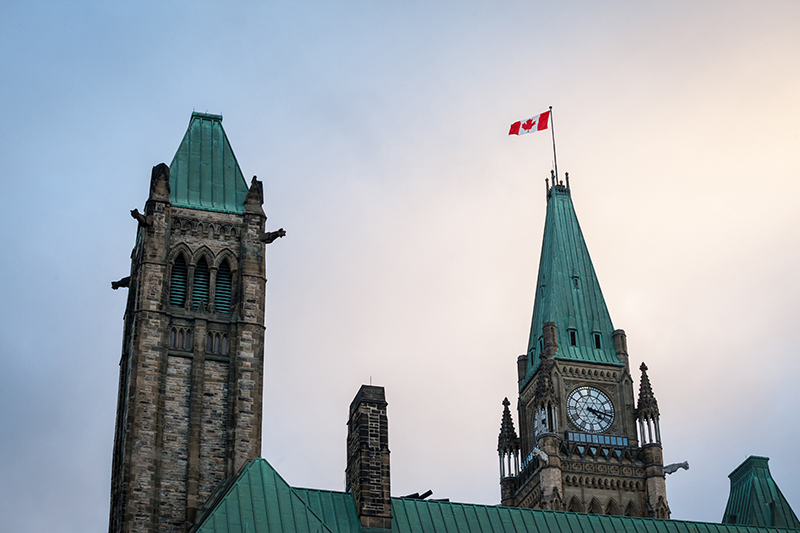

Features
Federal and Provincial Budgets
Federal budget 2024: What’s in it for employers?
April 16, 2024
By
Talent Canada
 Parliament Hill in Ottawa. Photo: Adobe Stock
Parliament Hill in Ottawa. Photo: Adobe Stock Finance Minister Chrystia Freeland delivered a federal budget Tuesday that keeps the deficit capped at $40 billion, thanks to higher-than-expected government revenues and new taxes that largely offset billions in new spending.
Freeland presented the federal budget in the House of Commons in the afternoon, which pledges $53 billion in new spending that she says is focused on economic justice for younger generations.
“We are moving with purpose to help build more homes, faster. We are making life cost less. We are driving the kind of economic growth that will ensure every generation of Canadians can reach their full potential,” said Freeland in her opening remarks in the House of Commons.
Highlights for employers
Some key highlights of interest to employers and HR:
Taxes
High-worth individuals, corporations and trusts will pay more in capital gains taxes. The inclusion rate increases to 66 per cent, up from 50 per cent, on capital gains above $250,000 for individuals and on all capital gains for corporations and trusts. The change is expected to yield an additional $19.4 billion over four years.
Excise taxes on tobacco and vaping products are going up: $4 on a carton of cigarettes and by 12 per cent on vape supplies — for a total of nearly $1.7 billion in revenue over five years.
Students
The government will spend $48 million over four years and $15.8 million thereafter to forgive the loans of early childhood educators.
Another $253.8 million over four years, plus $84.3 million a year thereafter, will go towards loan forgiveness for a host of health and education workers, including hygienists, pharmacists, teachers and social workers.
For businesses
— A 10 per cent tax credit for the cost of buildings used for key parts of the electric-vehicle supply chain over the next 10 years;
— A 15 per cent tax credit over the same period for eligible investments in new equipment or refurbishments for clean electricity;
— A new tax credit for about 600,000 small and medium-sized businesses worth $2.5 billion that disburses fuel charge proceeds dating back to 2019.
Mental health
— set up a $500-million fund to help community health organizations give more mental-health care to young people;
— legislate a “right to disconnect” for federally regulated workplaces;
— put $630 million towards access to mental-health services for Indigenous Peoples.
Foreign credentials
An additional $50 million over two years will bolster the foreign credential recognition program to help workers in construction and health care.
Ottawa also plan to spend $77.1 million on integrating internationally educated health-care professionals with new training positions.
Artificial intelligence
Ottawa is setting aside $2.4 billion in the upcoming budget to build capacity in artificial intelligence.
The bulk of the money — $2 billion — is going towards improving access to computing capabilities and technical infrastructure.
Another $50 million over five years will support workers who could be affected by artificial intelligence, including in the creative industries.
The government also plans to fund a new AI Safety Institute of Canada and Transport Canada technology to use AI to screen Canada-bound air cargo.
Public service
The federal workforce will shrink by about 5,000 full-time employees because of “natural attrition” over the next four years, part of an effort to cut costs.
with files from the Canadian Press
Print this page